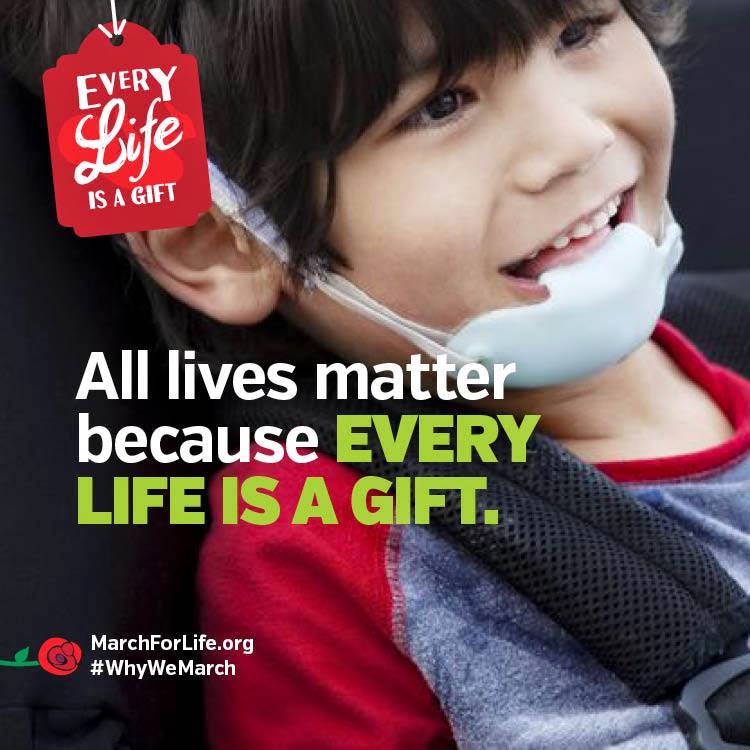What does it mean for life to be a gift?
The theme of this year’s March for Life is “Every Life is a Gift.” This theme, as March for Life president Jeanne Monahan explained in an op-ed in The Hill, is meant to draw attention to unborn babies who have been diagnosed with a disability. The piece closed with an invitation “to more fully explore how every life is a gift,” which I would like to do here.
The idea of life as a “gift” frequently has religious implications—God as the giver of life—but Monahan’s piece is entirely secular. As a secular person, I think about the gift of life in two ways.
First, I think in terms of gratefulness for my life. I have the privilege of living at a time in history with unprecedented opportunities, and I intend to make the most of every year I get on this earth. There is no shortage of secular commentary on the subject of being grateful for the gift of life (mostly near Thanksgiving). It’s entirely possible to be thankful, without having a deity to thank. I particularly like how Mormon-turned-atheist Matt Kunes put it:
Even if I can’t thank a specific person or organization, being thankful for my life in the abstract sense is ennobling. Call it “fate” or “the cosmos”; I like to take time to be thankful for my life, the good and the grit together.
I’m also thankful for specific people who have shaped my life, and who have kept me safe for this long: most obviously my parents, and also my brother, extended family members, friends, teachers, and so on.
People with disabilities share that sense of gratitude for their lives. The assumption that people with disabilities are constantly miserable, wishing they had never been born, is abhorrently ableist.
Second, every human being has something to offer to the rest of society; every life is a gift to the people touched by that life. This absolutely includes people with disabilities. Taking the example of Down Syndrome, Monahan points out:
79 percent of [parents of people with Down Syndrome] felt that their outlook on life was more positive because of their child with Down Syndrome. In terms of siblings’ feelings about Down Syndrome and how such a diagnosis impacted their family, 94 percent of older siblings expressed feelings of pride towards their siblings with Down Syndrome; 88 percent expressed feelings that they were better people because of their siblings with DS
autism.
The list of individuals with disabilities who have made a positive impact on society writ large is a very, very long one. The world would be a much poorer place without their lives.
This doesn’t mean that every mother must view every pregnancy as a gift to them. Nor do I mean to suggest that it’s wrong for a parent to react with fear, rather than gratitude, when given the news that their child has a disability. It’s okay to be human! Life is messy and imperfect.
But as messy as life is, it is nonetheless a gift. Every person deserves the chance to live and experience all this world has to offer, the good and the bad. And that is why I march.


Leave a Reply
Want to join the discussion?Feel free to contribute!